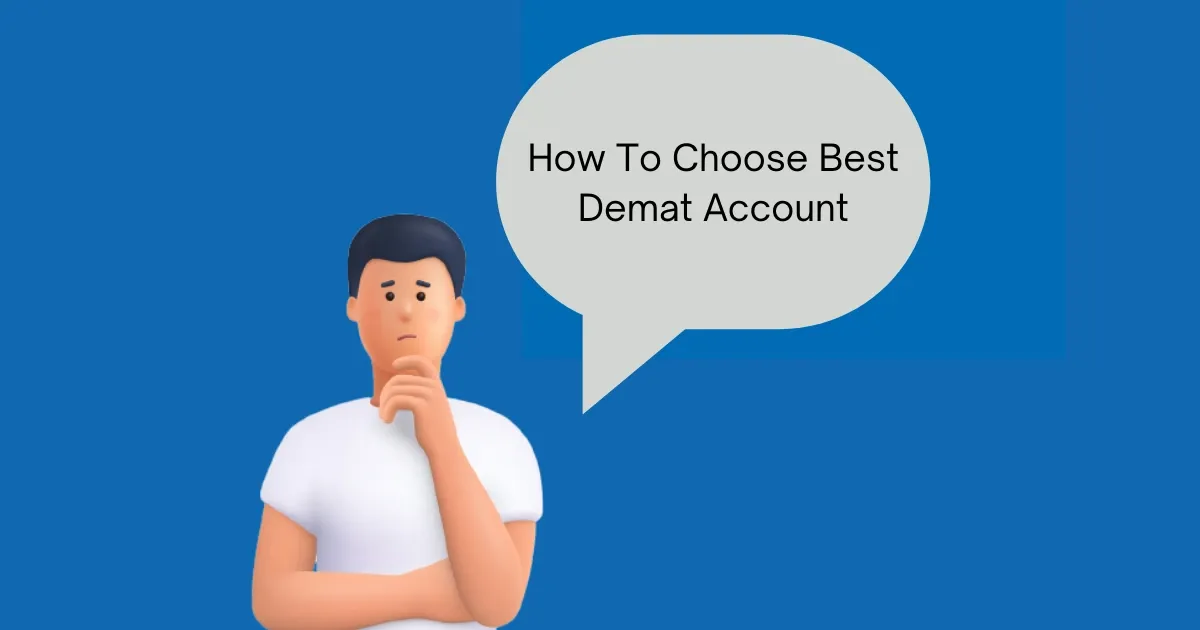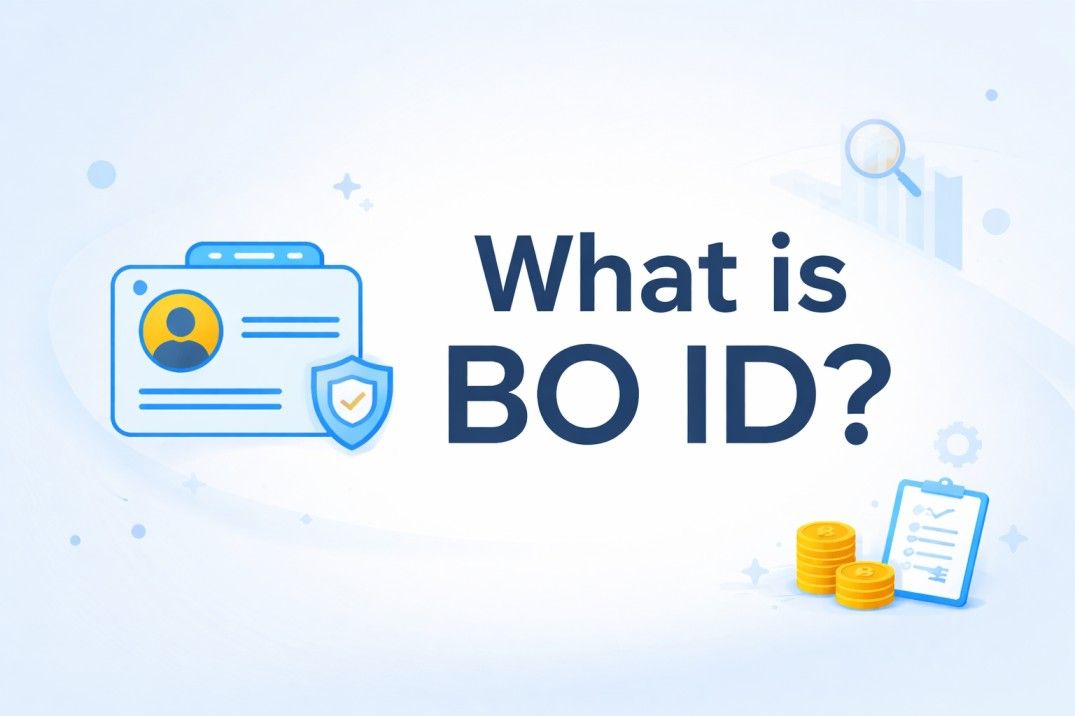- Home
- Blog
- Demat Account
- How To Choose The Best Demat Account In India For Beginners
- How To Choose The Best Demat Account In India For Beginners
How To Choose The Best Demat Account In India For Beginners

- Published Date: December 17, 2024
- Updated Date: November 07, 2025
- By Team Choice
A Demat account is a vital gateway for anyone looking to trade or invest in the Indian stock market. Short for a Dematerialisation account, it allows investors to hold shares and securities electronically, eliminating the hassles of physical certificates. But with a plethora of options available, choosing the best Demat account in India for beginners can feel overwhelming.
Whether you're searching for the best trading account for beginners in India or the best free Demat account, this blog covers you. This guide offers an actionable framework for identifying the best Demat account by considering key factors such as brokerage charges, user interface, and integration with banking services.
How to Identify the Best Demat Account for Beginners
For newcomers in the world of investments, selecting the best Demat account in India for beginners is a crucial step. Here's a detailed guide to help you choose the perfect Demat account for your needs.
Simple and Fast Account Opening Process:
The process to open a Demat account should be straightforward, especially for beginners. Choose a provider that allows an online account setup, enabling you to open a Demat account quickly and securely from anywhere. Platforms with clear instructions and minimal documentation requirements make the journey smoother.
Key factors to consider:
- Availability of online account opening.
- User-friendly applications for uploading KYC documents.
- Assistance through chat or phone support.
User-Friendly and Robust Interface:
The user interface is the backbone of any trading account. A simple, intuitive design ensures that even beginners can navigate seamlessly through the features. The best accounts should offer easy access to essential tools like stock analysis, portfolio tracking, and trade execution.
Key considerations:
- Clean, clutter-free dashboard.
- Accessible information on stocks, historical data, and market trends.
- Tools to analyse types of shares and their performance.
Low Brokerage Charges:
High brokerage fees can significantly impact your profits, particularly if you trade frequently. Look for a provider offering competitive rates or a zero-brokerage model for beginners. This can help keep your costs under control while improving returns.
Questions to ask:
- Are the brokerage charges clearly defined?
- Is there a free or low-cost structure for beginners?
- Are there any hidden charges
Annual Maintenance Charges:
The annual maintenance charges (AMC) for your Demat account are another critical cost component. Beginners should opt for platforms offering minimal or zero AMC during the first year, followed by clearly defined charges in subsequent years. Transparency is key to avoiding unexpected expenses.
In-Depth Data Analytics:
To grow as an investor, you need access to in-depth data analytics tools. The best Demat accounts provide features like detailed reports, stock trend analysis, and real-time market data, which are invaluable for beginners looking to make informed decisions.
Look for:
- Real-time stock market insights.
- Advanced charting and research tools.
- Predictive analysis for long-term investment strategies.
Integration Between Banking and Broking:
A seamless link between your savings account and trading account makes transferring funds quick and hassle-free. Choose providers with robust banking integration for smooth transactions and real-time fund transfers.
Features to prioritise:
- Instant fund transfer options.
- Security protocols for financial transactions.
- Unified interface for banking and brokerage services.
Security and Compliance:
Safety should never be compromised when dealing with investments. Ensure the Demat account provider is compliant with regulatory standards and offers robust security measures to protect your funds and data.
Essential checks:
- SEBI (Securities and Exchange Board of India) registration.
- Two-factor authentication for login and transactions.
- Encryption of sensitive data.
Different Types of Demat Accounts
Before we move forward with the process of choosing the best Demat account, let’s understand the types of Demat accounts available to help you make informed decisions.
1. Regular Demat Account:
A Regular Demat Account is the standard account used for holding and trading securities. It is most commonly used by investors who trade frequently. The key features of a Regular Demat Account include:
- Eligibility: Available to individual investors and entities (e.g., companies or institutions).
- Functionality: Allows for the electronic holding of securities and is linked to a trading account for easy buying and selling.
- Charges: It typically incurs annual maintenance charges (AMC) and transaction fees.
2. Basic Service Demat Account:
A Basic Services Demat Account (BSDA) is a type of Demat Account introduced to promote small investors’ participation in the stock market. It offers a simplified and cost-effective way to hold securities.
- Lower Cost: Minimal annual maintenance charges (AMC), with some provisions for no charges.
- Eligibility: Available to individual investors with a single Demat account in their name. The total value of securities must not exceed ₹10 lakh.
- Charges:
- No AMC for portfolios up to ₹4 lakh.
- ₹100 AMC for portfolios between ₹4 lakh and ₹10 lakh.
- Accounts exceeding ₹10 lakh convert to a regular Demat account.
Note: SEBI has raised the securities limit for BSDA accounts to ₹10 lakh, up from the previous limit of ₹2 lakh. This change, which came into effect on 1st September 2024, is aimed at encouraging small investors to engage more actively in the stock market.
3. NRI Demat Account:
An NRI Demat Account is a category that encompasses both Repatriable and Non-Repatriable accounts. This type of account is specifically for Non-Resident Indians who want to invest in Indian securities.
Repatriable Demat Account:
A Repatriable Demat Account is designed for Non-Resident Indians (NRIs) who want to transfer their funds abroad.
- Eligibility: NRIs who want to invest in Indian stock markets.
- Features:
- Investments made through this account can be repatriated (i.e., transferred back to the investor’s home country).
- Linked to an NRE (Non-Resident External) bank account.
- Ideal for: NRIs who wish to transfer profits abroad.
Non-Repatriable Demat Account:
A Non-Repatriable Demat Account is another type of account for NRIs, but it has different rules regarding fund transfers.
- Eligibility: NRIs who wish to invest in the Indian stock market but do not need to transfer funds abroad.
- Features:
- Investments cannot be repatriated.
- Linked to an NRO (Non-Resident Ordinary) bank account, which allows funds transfer within India only.
- Ideal for: NRIs who plan to keep their funds within India and are not looking to repatriate the funds.
Types of Stock Brokers Available in India
Stock brokers in India can be classified into two main categories: Full-service brokers and Discount brokers. Below is a comparison table to highlight the differences between them:
Feature | Full-Service Broker | Discount Broker |
Services Offered | Wide range of services including research, advisory, trading tips, and wealth management. | Focus mainly on trading, with minimal or no additional services. |
Commission/Fees | Higher brokerage fees due to the variety of services provided. | Lower brokerage fees, usually a flat rate per trade. |
Customer Support | Offers personalised support, including advisory and portfolio management. | Limited support, mainly for trading-related queries. |
Research & Analysis | Provides in-depth research reports, market analysis, and stock recommendations. | Minimal to no research support; some may offer basic tools. |
Technology/Trading Platforms | Advanced trading platforms with additional features for research and portfolio tracking. | Simple trading platforms focused on execution. |
Account Opening Charges | Higher account opening charges due to added services. | Lower or no account opening charges. |
Target Audience | Suitable for new investors who require comprehensive services and personalised advice. | Best for cost-conscious traders or experienced investors who prefer to trade independently. |
Key Developments in the Demat Account Landscape 2025
In 2024, several key developments have reshaped the Demat account landscape in India:
- The number of Demat account holders grew significantly, reaching 11.82 crore by October 2024, up from 3.88 crore in 2020.
- Starting September 2024, SEBI has increased the limit for Basic Service Demat Accounts (BSDA) from ₹2 lakh to ₹10 lakh.
- SEBI has made it mandatory for investors to nominate beneficiaries for both Demat and mutual fund accounts.
- Demat accounts now facilitate investment in a wider range of products, like mutual funds, ETFs, real estate, and private equity.
These trends suggest a more inclusive and technologically advanced future for Demat accounts.
Conclusion
Selecting the best trading and Demat account for beginners in India involves balancing affordability, usability, and the availability of value-added features. Prioritise platforms with simple account opening, low fees, and robust analytical tools to kickstart your investment journey with confidence.
Open a Demat account with Choice today and explore the world of stocks and securities efficiently.
Frequently Asked Questions (FAQs)
Which is the best Demat account in India for beginners?
The best Demat account depends on individual needs. Always compare features, charges, and reviews to find the account that aligns with your trading goals.
Can a Demat account be opened online?
Yes, the process to open a Demat account is fully online with most brokers. By uploading KYC documents like PAN, Aadhaar, and a photo, you can set up your account within minutes.
3. Are documents required to open a Demat account?
Yes, documents like a PAN card, Aadhaar, proof of address, and a bank statement are required. For a detailed list, check our blog on Documents Required To Open A Demat Account.
4. Are there charges or fees to open a Demat account?
While many platforms offer free account opening, they may charge fees for services like trading or annual maintenance. Compare charges to find the best free Demat account in India.
5. Can I have multiple Demat accounts?
Yes, you can open multiple Demat accounts as there is no limitation on the number of Demat accounts an investor can hold. However, managing multiple accounts can incur higher costs.
6. Which trading account is best in India?
The best trading account in India depends on individual needs such as ease of use, brokerage charges, and additional features. Their features should cater to beginners and seasoned traders alike.
Related Stories
Best Trading Platform for Beginners in India: Learn about finding the best trading platform for beginners in India.
Benefits of Demat Accounts: Discover the benefits of a Demat account and understand why it is essential for beginners and experienced investors alike.
Best App for Stock Market in India: Check out the features the best app should offer to investors for efficient trading.
Recommended for you

What is BO ID? Meaning, Importance & How to Find?

Equity vs Mutual Fund: Key Differences, Benefits, and Which Is Right for You

FII DII Data - Live Data
